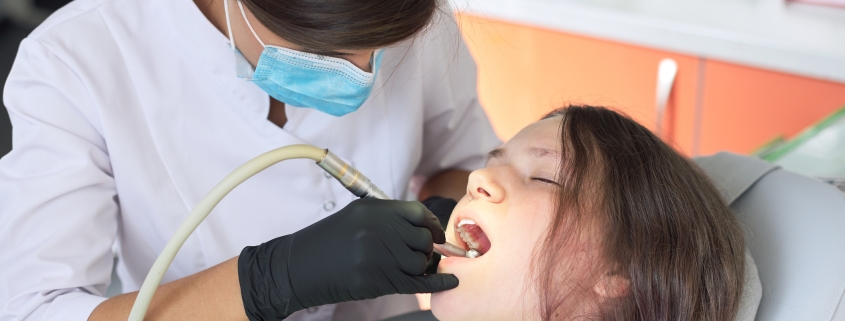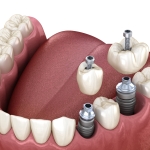Fear of dentistry or dental phobia or odontophobia is one of the common fears around the world, which causes many people to avoid going to the dentist just because of this fear and end up facing much more complicated and painful problems. Sedation or dentistry in sleep is one of the ways to overcome fear during dentistry.
What is dentistry in sleep or sedation in teething?
In general, sedation in dentistry is a method of controlling stress and unwanted reactions using medication. Sedation (sedation) has made many people who were deprived of receiving normal dental services in the not-so-distant days, able to overcome the nightmare of their fear or reactions.
This fear can have different degrees from mild to very severe. Sometimes the intensity of this fear increases to such an extent that the patient cannot be treated under normal conditions, and the discussion of complete anesthesia in dentistry is raised.
In the statistics presented in England in 2009, about 36% of the patients have experienced a moderate degree of this fear, and 12% of these people are so afraid of dentistry that under no circumstances, even in the presence of severe dental pain. They are not even willing to go to the dentist.
Why we are afraid of dentistry and what does sedation help?
Fear of dentistry has different aspects. Different patients are sometimes afraid of the whole of dental treatments and in some cases they are only afraid of a specific thing such as anesthesia injection, the sound of teeth being milled and shaved, surgical instruments and pain during work and similar things.
An unpleasant dental experience in childhood due to the unavailability of pediatric dentistry or a painful treatment in adulthood such as wisdom tooth surgery are among the main causes of dental fear.
There are some people who, although they have not had a painful dental experience, but have heard so many scary things about dentistry that they are afraid of doing these treatments.
Fear of anesthesia injection is one of the most common fears of patients. In this case, it should be said that dental injections, contrary to the scary appearance of its metal syringes, are not as painful as injections in other parts of the body. Dental needles are much finer and thinner than normal injection needles.
This simple comparison can reduce your fear significantly. At the same time, remember that the result of this few seconds of injection can be a pain-free and stress-free treatment.
Dentistry in sleep
In sleep dentistry, by complying with the necessary standards and using advanced equipment in a 24-hour dental clinic, along with the prescription of drugs, it is possible to provide suitable conditions for performing dental services such as implants, tooth extraction, etc. for the patient under sedation.
Interesting points in dentistry in sleep
An interesting point is that adults’ fear of children is much stronger and deeper. A child’s fear can be moderated and diverted, but this is almost impossible for adult patients.
A patient dentist who has experience working with children can usually reduce the child’s fear and provide the necessary treatment by using certain tricks.
Fear of dentistry, especially when it is more than mild, can lead to serious problems for the patient and the dentist.
Many people are not willing to go to the dentist and fix their dental and gum problems because of this fear.
As a result, these problems progress day by day and cause severe damage to the teeth and gums.
On the other hand, usually in these conditions, the destruction of the teeth is to such an extent that their restoration and reconstruction will be a difficult and expensive task, and even after the treatment, one cannot have enough confidence about the success of the treatment and the durability of the tooth.
In the case of adults, there are various methods to reduce fear, one of which is sedation in dentistry. Meanwhile, the dentist plays a very important role in reducing the patient’s anxiety.
By explaining the treatment procedures to frightened patients, the dentist can reduce their fear of equipment and treatment procedures. Patients who are afraid of dentistry can ask the dentist to explain the treatment steps and the equipment used before starting the treatment. Of course, complete and deep anesthesia in dentistry is the last step.



